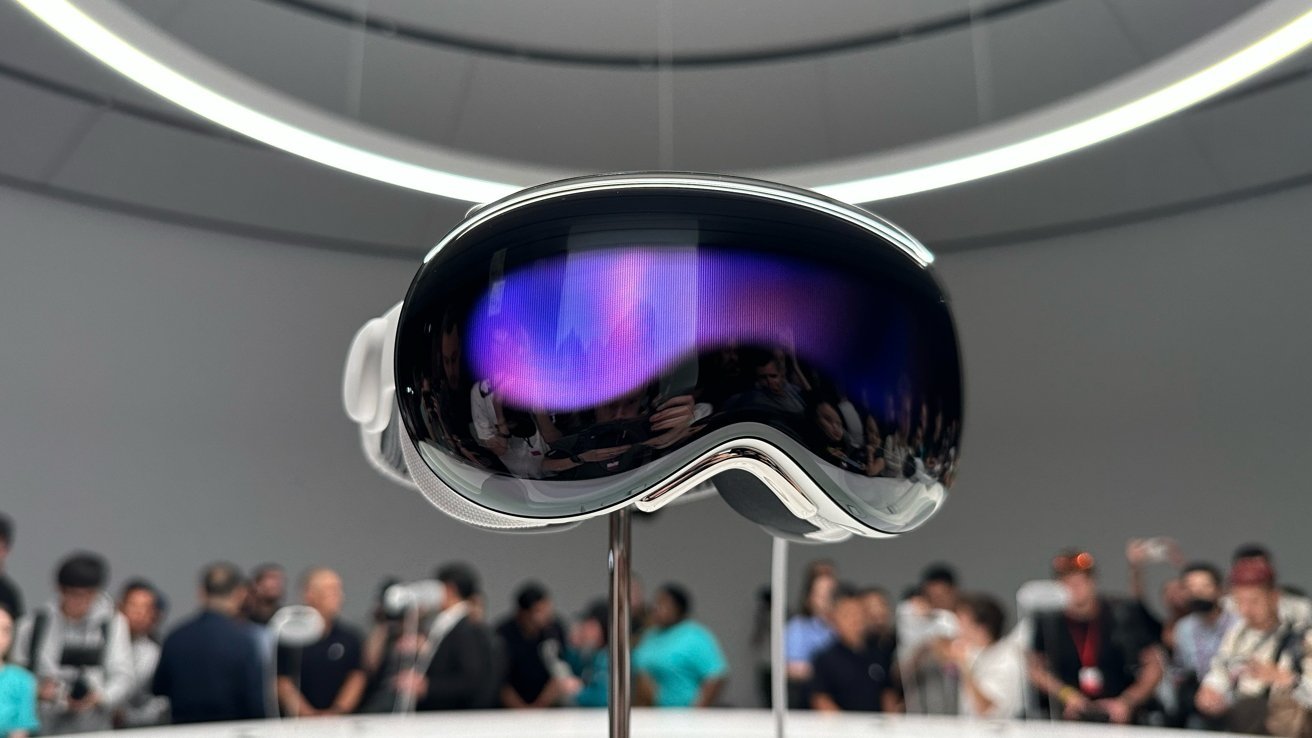Apple Vision Pro could help surgeons see vital data during operations
The Apple Vision Pro may be beneficial in medicine, a surgeon suggests, with the mixed-reality headset potentially helping by providing vital data during surgery.

Apple Vision Pro
Apple's introduction of the Apple Vision Pro could be a boon to productivity in the workplace, but in one case, it could be a lifesaver. In the opinion of one surgeon, it could give "superpowers" to doctors.
Dr. Rafael Grossmann, a general surgeon with a background in robotic surgery and the first to live-stream a surgery using Google Glass, thinks the Apple Vision Pro could do a lot to help in the middle of an operation when information is key to a patient's survival.
"Within the operating room, you are gathering data in mixed reality that is helping you in real time, in a synchronous fashion, do the procedure," Grossmann explained to WMTV8 about current mixed-reality technology he is currently using.
The tech "allows you to not have to turn your head where you can actually bring the computer," he adds. Using spatial computing, the displays could feasibly be anywhere in the room, and in the case of surgery, potentially within the wearer's eye line.
Beyond operations, Grossmann proposes that Apple's headset could be employed in other ways, such as to provide more connection between doctor and patient. For example, a digital assistant could be shown to the physician to handle basic tasks like note-taking, or to offer up information from patient records.
Read on AppleInsider


Comments
If hospitals buy tens of thousands of them, bring it. AAPL will benefit and so will I.
While surgery may not be an area in the near future, it is worth noting Apple technology is increasingly being used in hospitals and by doctors. Some of the ways that Apple technology is being used in healthcare include:
Apple is also working with the medical community to develop new ways to use its technology in healthcare. For example, the company is working on a project to use Apple Watch to help people with diabetes manage their condition.
Overall, Apple technology is having a positive impact on healthcare. It is helping to make care more efficient, personalized, and accessible. As Apple continues to develop its healthcare products and services, it is likely that we will see even more innovative ways to use this technology in the future.
I had no idea until my doctor and other of his colleagues gave lectures with surgical videos to a broad audience of patients and families of patients.
Can the Vision Pro support such activities? I'll let the medical technologists make that decision. It's certainly not beyond the possibility.
I think before these make it to live surgery however, they will be MUCH more useful in training scenarios for surgeons.
And we constantly bitch about the poor design of hospital based IT systems though Epic and Cerner are decent.
When I saw Apple demo the AVP, I immediately began to think about medical applications. Getting quick data, especially realtime laboratory data is a challenge during medical urgencies & a virtual overlay would be of immense benefit to us. But obviously you can’t be closed off to your environment in a crisis and need your hands to do procedures. Time will tell.
Eriamjh -- I spend a lot of time using very high magnification glasses during transplants, and I have no doubt the Vision Pro would be capable of giving outstanding magnification/resolution for the most micro of surgery.
Mikethemartian -- Physicians would use Apple products during surgery in a heartbeat. The most popular robotic system is Intuitive's da Vinci and it uses a 3-D immersive screen when performing all of the surgery (ie we do liver resections, organ procurements etc robotically). And I have fully expect the resolution and clarity and experience for the Vision Pro to be exponentially superior to Intuitive's system, based on reported specs.
JP234 -- All of your Chicago area surgeons are using the Intuitive da Vinci system I described above and BTW 95% percent have less than 10 years experience... most of those surgeons have far less than 5 years experience. (That being said, the surgeons at U of I are some of the preeminent world leaders of robotic surgery...). The visual technology we use in robotic systems are far inferior than that of the Vision Pro (if the specs are to be believed). It would be great if we could sync the Vision Pro technology to the da Vinci system at some time in the future. I would not be surprised to see a future collaboration there.
You don't have much faith in Apple products, eh? The iPad is now used heavily in medical spaces. And Apple went with the "Pro" moniker out of the gate to show just how powerful and precise their headset is compared to what's already on the market. They jumped all the way to the front of the pack in terms of sheer resolution and processing power. That's already been well-expressed in the reviews of the Vision Pro. Clarity of what users see is not in question. Resolution is above what the retina can discern.
If hospitals used more Apple computers, there'd be fewer data breaches. It blows my mind that Windows continues to have such a strong hold on that market.
This is the birth of a new world, and Apple will definitely have a strong placement in medical sciences, research and facilities around the world.
Apple didn't invent anything new.
Royal Flying Doctor Service to do remote first aid and/or triage to decide What Needs To Be Done.